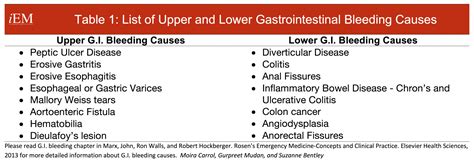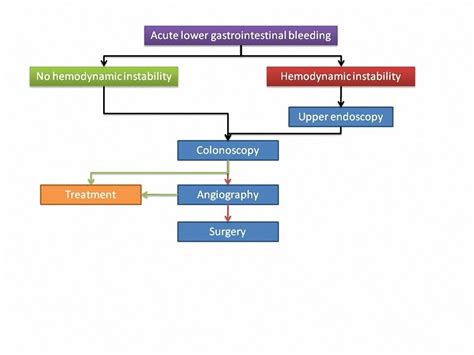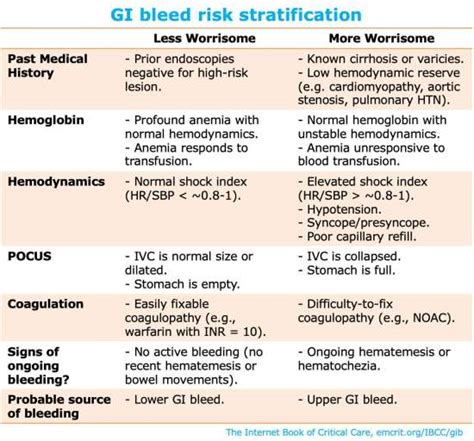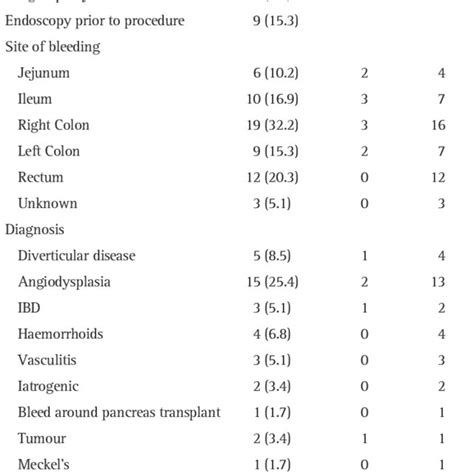Intro
Discover 5 ways GI bleed happens, including ulcers, cancer, and inflammation, and learn about symptoms, diagnosis, and treatment options for gastrointestinal bleeding.
Gastrointestinal bleeding, commonly referred to as GI bleed, is a serious medical condition that requires immediate attention. It occurs when there is bleeding in the gastrointestinal tract, which includes the esophagus, stomach, small intestine, and large intestine. GI bleed can be life-threatening if not treated promptly and properly. In this article, we will explore the different ways GI bleed can happen, its causes, symptoms, and treatment options.
GI bleed is a significant health concern, affecting millions of people worldwide. It can occur suddenly or over a period of time, and its severity can vary greatly. Some cases of GI bleed may be mild and resolve on their own, while others can be severe and require surgical intervention. Understanding the different ways GI bleed can happen is crucial for early detection and treatment.
The gastrointestinal tract is a complex system that is prone to various disorders and conditions. GI bleed can occur due to a variety of reasons, including ulcers, inflammation, infections, and tumors. It can also be caused by the use of certain medications, such as nonsteroidal anti-inflammatory drugs (NSAIDs) and anticoagulants. In some cases, GI bleed can be a symptom of an underlying condition, such as liver disease or gastrointestinal cancer.
Causes of GI Bleed

Types of GI Bleed
GI bleed can be classified into two main types: upper GI bleed and lower GI bleed. Upper GI bleed occurs in the esophagus, stomach, or small intestine, while lower GI bleed occurs in the large intestine. The symptoms and treatment options for these two types of GI bleed can differ significantly.Symptoms of GI Bleed

Diagnosis of GI Bleed
Diagnosing GI bleed typically involves a combination of physical examination, medical history, and diagnostic tests. These tests may include: * Endoscopy: A flexible tube with a camera is inserted through the mouth or rectum to visualize the inside of the gastrointestinal tract. * Colonoscopy: A flexible tube with a camera is inserted through the rectum to visualize the inside of the large intestine. * Imaging tests: Such as X-rays, computed tomography (CT) scans, or magnetic resonance imaging (MRI) scans to visualize the gastrointestinal tract.Treatment Options for GI Bleed

Prevention of GI Bleed
Preventing GI bleed involves managing underlying conditions, avoiding certain medications, and maintaining a healthy lifestyle. This may include: * Managing stress * Eating a balanced diet * Avoiding NSAIDs and anticoagulants * Getting regular check-ups and screeningsComplications of GI Bleed

Long-term Outlook for GI Bleed
The long-term outlook for GI bleed depends on the underlying cause and severity of the bleeding. With prompt and proper treatment, many people can recover fully from GI bleed. However, in some cases, GI bleed can be a recurring condition, and ongoing management and monitoring may be necessary.Current Research on GI Bleed

Future Directions for GI Bleed Treatment
The future of GI bleed treatment is promising, with several new and innovative approaches on the horizon. These include: * Personalized medicine: Tailoring treatment to an individual's specific needs and genetic profile. * Minimally invasive procedures: Developing new endoscopic and surgical techniques that are less invasive and have fewer complications. * Gene therapy: Using genetic engineering to develop new treatments for GI bleed.What are the symptoms of GI bleed?
+The symptoms of GI bleed can include vomiting blood or coffee ground-like material, black, tarry stools, abdominal pain or tenderness, weakness or fatigue, shortness of breath, and pale or cool skin.
How is GI bleed diagnosed?
+GI bleed is typically diagnosed using a combination of physical examination, medical history, and diagnostic tests, such as endoscopy, colonoscopy, and imaging tests.
What are the treatment options for GI bleed?
+The treatment options for GI bleed depend on the underlying cause and severity of the bleeding, and may include medications, endoscopic treatments, and surgery.
Can GI bleed be prevented?
+Yes, GI bleed can be prevented by managing underlying conditions, avoiding certain medications, and maintaining a healthy lifestyle, including managing stress, eating a balanced diet, and getting regular check-ups and screenings.
What are the complications of GI bleed?
+GI bleed can lead to several complications, including shock, anemia, and organ failure, and can be life-threatening if not treated promptly and properly.
In conclusion, GI bleed is a serious medical condition that requires prompt and proper treatment. Understanding the different ways GI bleed can happen, its causes, symptoms, and treatment options is crucial for early detection and management. By working together with healthcare providers and taking steps to prevent GI bleed, individuals can reduce their risk of developing this condition and improve their overall health and well-being. We encourage readers to share this article with others, and to take the necessary steps to protect their health. If you have any questions or concerns about GI bleed, please do not hesitate to reach out to a healthcare professional.
